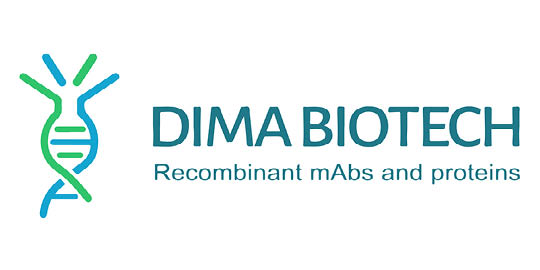Human CCR1-Strep full length protein-synthetic nanodisc
Human CCR1-Strep full length protein-synthetic nanodisc
SKU
DMAFLP120094-50
Packaging Unit
50 µg
Manufacturer
DIMA Biotechnology
Availability:
loading...
Price is loading...
Background: A member of the beta chemokine receptor family, which is predicted to be a seven transmembrane protein similar to G protein-coupled receptors. The ligands of this receptor include macrophage inflammatory protein 1 alpha (MIP-1 alpha), regulated on activation normal T expressed and secreted protein (RANTES), monocyte chemoattractant protein 3 (MCP-3), and myeloid progenitor inhibitory factor-1 (MPIF-1). Chemokines and their receptors mediated signal transduction are critical for the recruitment of effector immune cells to the site of inflammation. Knockout studies of the mouse homolog suggested the roles of this gene in host protection from inflammatory response, and susceptibility to virus and parasite. This gene and other chemokine receptor genes, including CCR2, CCRL2, CCR3, CCR5 and CCXCR1, are found to form a gene cluster on chromosome 3p.
Description: Human CCR1-Strep full length protein-synthetic nanodisc
Molecular Weight: The human full length CCR1-Strep protein has a MW of 41.2 kDa
Protein Families: Druggable Genome, GPCR, Transmembrane
Protein Pathways: Chemokine signaling pathway, Cytokine-cytokine receptor interaction
Storage & Shipping: Store at -20°C to -80°C for 12 months in lyophilized form. After reconstitution, if not intended for use within a month, aliquot and store at -80°C (Avoid repeated freezing and thawing). Lyophilized proteins are shipped at ambient temperature.
Tag: C-Flag&Strep Tag
Expression Host: HEK293
Formulation & Reconstitution: Lyophilized from nanodisc solubilization buffer (20 mM Tris-HCl, 150 mM NaCl, pH 8.0). Normally 5% – 8% trehalose is added as protectants before lyophilization. Please see Certificate of Analysis for specific instructions. Do not use solvents with a pH below 6.5 or those containing high concentrations of divalent metal ions (greater than 5 mM) in subsequent experiments.
Target: CCR1
Uniprot ID: P32246
Usage: Research use only
Description: Human CCR1-Strep full length protein-synthetic nanodisc
Molecular Weight: The human full length CCR1-Strep protein has a MW of 41.2 kDa
Protein Families: Druggable Genome, GPCR, Transmembrane
Protein Pathways: Chemokine signaling pathway, Cytokine-cytokine receptor interaction
Storage & Shipping: Store at -20°C to -80°C for 12 months in lyophilized form. After reconstitution, if not intended for use within a month, aliquot and store at -80°C (Avoid repeated freezing and thawing). Lyophilized proteins are shipped at ambient temperature.
Tag: C-Flag&Strep Tag
Expression Host: HEK293
Formulation & Reconstitution: Lyophilized from nanodisc solubilization buffer (20 mM Tris-HCl, 150 mM NaCl, pH 8.0). Normally 5% – 8% trehalose is added as protectants before lyophilization. Please see Certificate of Analysis for specific instructions. Do not use solvents with a pH below 6.5 or those containing high concentrations of divalent metal ions (greater than 5 mM) in subsequent experiments.
Target: CCR1
Uniprot ID: P32246
Usage: Research use only

 Deutsch
Deutsch











